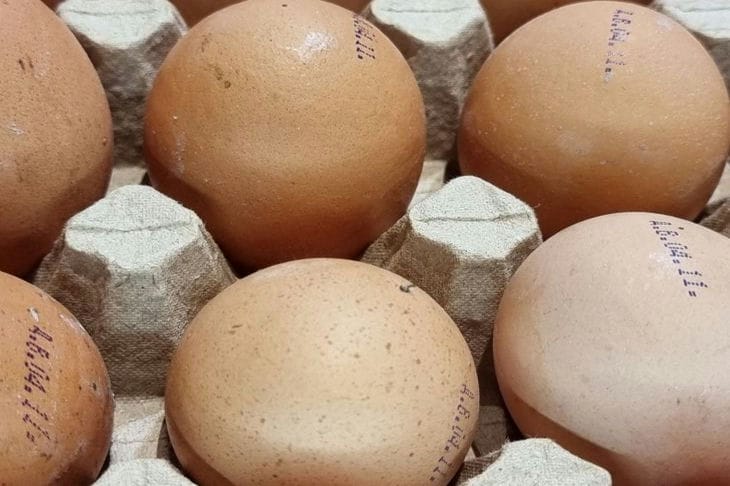Chicken eggs are a valuable food product containing protein, vitamins and minerals.
They are an integral part of many dishes and are widely used in cooking.
However, eggs spoil quickly, so it is important to know how to store them properly to maintain freshness, quality and nutritional properties.

Temperature conditions
The optimal temperature for storing eggs is from +2°C to +5°C. At this temperature, the development of bacteria and decomposition processes slow down, which allows you to keep eggs fresh for a long time.
It is not recommended to store eggs at room temperature, as this leads to a rapid deterioration in their quality.
Humidity
Air humidity also affects the preservation of eggs. The optimal humidity level is 70-80%.
If the humidity is too low, the eggs will lose moisture and dry out, and if it is too high, the risk of mold development increases.
Storage location
The best place to store eggs is in the refrigerator. The special compartment on the refrigerator door intended for eggs is not always the best option.
The temperature in this compartment can fluctuate due to frequent opening of the refrigerator door, which has a negative impact on the preservation of eggs. It is better to store eggs on a shelf in the back of the refrigerator, where the temperature is more stable.
Package
Eggs are best stored in the original packaging they were purchased in. Cardboard packaging protects eggs from mechanical damage and light, and also allows them to "breathe".
It is not recommended to store eggs in plastic bags, as this creates a greenhouse effect and promotes the growth of bacteria.
Shelf life
The shelf life of eggs depends on the storage conditions and their freshness. Fresh eggs can be stored in the refrigerator for up to 4-5 weeks. Boiled eggs are stored less - up to 7 days. Eggs that have been frozen are not recommended for consumption.
Quality control
Before eating eggs, you need to check their quality. There are several simple ways to check:
- Visual inspection: fresh eggs have clean, whole shells without cracks or chips.
- Shaking: If you hear a bubbling sound when shaking an egg, it is not fresh.
- Test in water: a fresh egg sinks in water, but a stale one floats.
Maintaining hygiene
When handling eggs, it is important to maintain hygiene to prevent salmonella and other infections.
Before using eggs, wash them with soap and warm water. You should also thoroughly wash your hands and surfaces that have come into contact with the eggs.
Earlier we talked about how to urgently wash things if you run out of powder .








